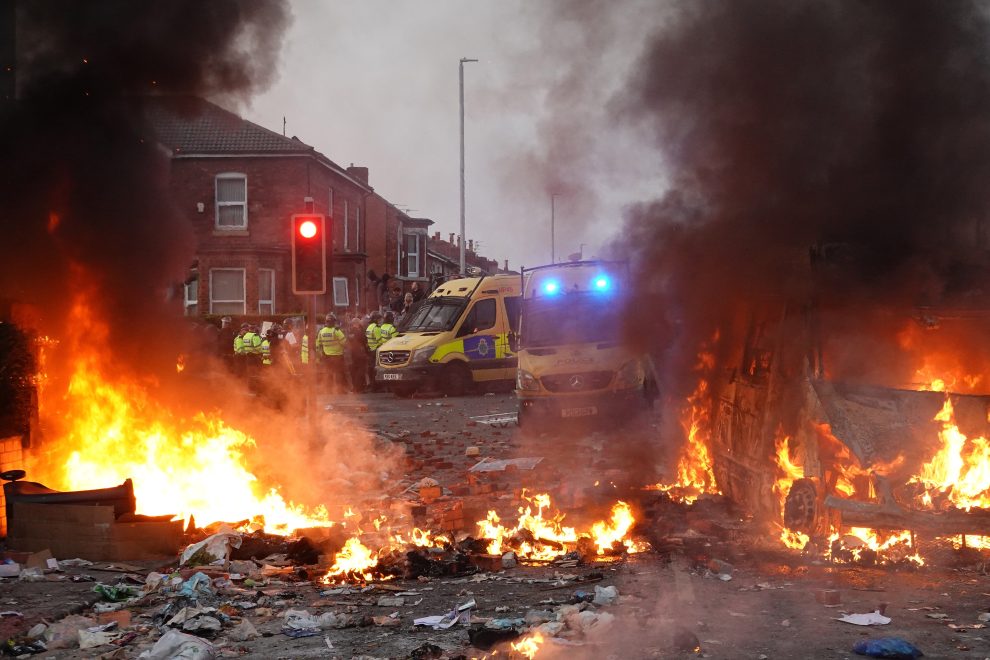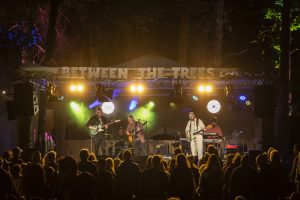IN A SERIES of protests that have spread across multiple cities in the UK, tensions are high as demonstrators and counter-demonstrators clash. From Hull to London, the atmosphere remains charged with sporadic violence and heavy police presence.
Hull witnessed severe unrest as protesters gathered outside a hotel housing asylum seekers. The crowd, chanting “get them out,” resorted to throwing concrete bricks and smashing windows. The police have struggled to contain the situation as anger flared.
In Leeds and Stoke-on-Trent, opposing groups staged marches. Leeds saw far-right groups rallying “against terrorism” while Stand Up to Racism counter-protesters advocated for refugee rights. Police successfully kept the groups apart, but the tension was palpable.
Sunderland experienced significant violence overnight following a knife attack in Southport. Rioters vandalised a police building and set a Citizens Advice branch on fire. Police reported serious injuries and numerous arrests as they battled to restore order.
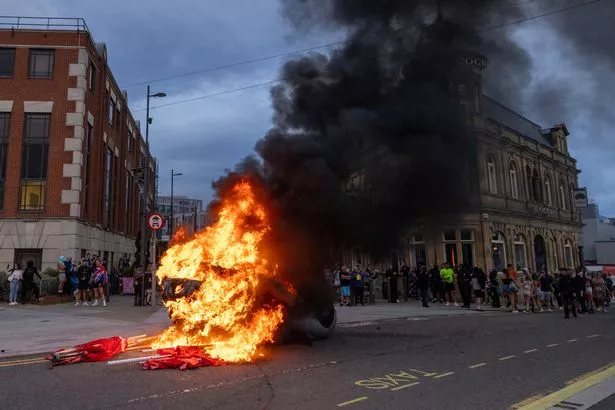
The Metropolitan Police in London have deployed 1,000 officers in anticipation of further unrest. Right-wing activist Tommy Robinson’s march is expected to face significant opposition from counter-protesters organised by the Peace & Justice Project and Stand Up to Racism. The authorities have invoked the Public Order Act to maintain peace and prevent clashes.
In Manchester and Portsmouth, protests remained largely peaceful, though the heavy police presence underscored the potential for violence. Dispersal orders were issued to preempt any escalation.
The recent wave of protests underscores a growing divide within the UK, with various groups seizing on recent events to advance their agendas. Authorities continue to urge calm and have promised to take firm action against any unlawful behaviour.
In Hull, protesters targeted a hotel housing asylum seekers, hurling concrete bricks and smashing windows with glass bottles. Chants of “get them out” filled the air as police worked to manage the increasingly volatile crowd.
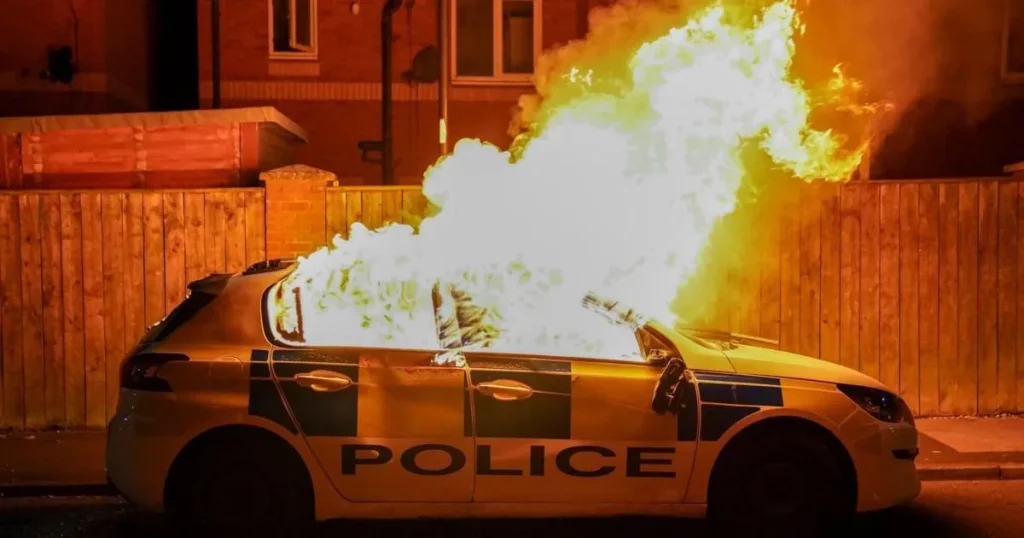
Leeds city centre saw competing marches near the town hall and art gallery. Far-right groups, carrying St George’s flags, demonstrated against terrorism, while Stand Up to Racism counter-protesters marched with banners welcoming refugees. Police managed to keep the groups apart, maintaining a fragile peace. In Stoke-on-Trent, around 400 protesters gathered, with police dogs and officers keeping rival groups separated. Though largely peaceful, the atmosphere was tense, with police advising residents to stay indoors.
Sunderland was rocked by violence last night, with hundreds taking to the streets following Monday’s knife attack in Southport. Four officers were injured, and ten people were arrested as rioters caused significant damage, including ransacking a police building and setting fire to a Citizens Advice office. Islamophobic slurs and chants in support of far-right activist Tommy Robinson were reported. This morning, volunteers joined council staff to clean up the city, with local leaders condemning the violence and promising swift legal action against those involved.
In Manchester, police formed lines to separate protesters at Piccadilly Gardens. Demonstrators chanted slogans such as “stop the boats” and “save our kids,” while anti-fascist counter-demonstrators faced off from the other side. A few young people breached the police line but were quickly managed, and the groups began to disperse. Hull city centre saw hundreds of protesters with Union Jack flags clashing with counter-protesters advocating for refugee rights. Plastic bottles and food were thrown, but the situation remained under police control.
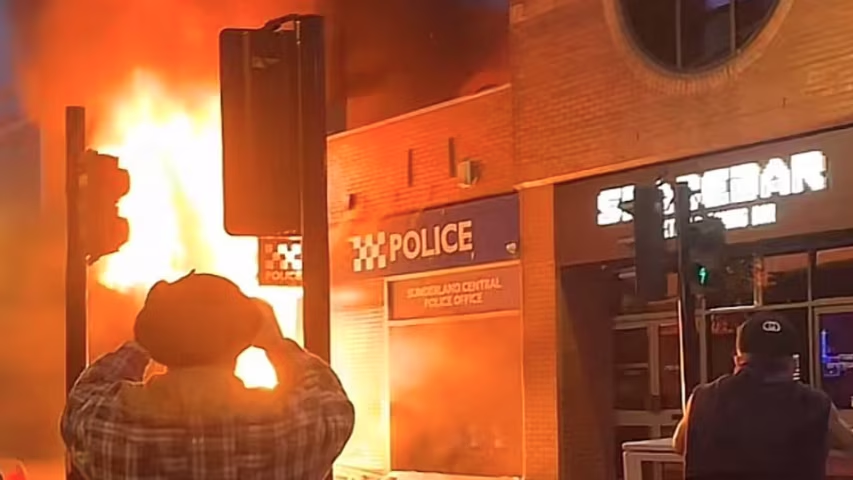
Dispersal orders have been implemented in Manchester, Cardiff, and Blackburn to prevent further unrest. In Belfast, a significant police operation is in place, with anti-Islamic protesters gathering at City Hall and anti-racist demonstrators across the road.
The protests highlight the UK’s deepening divisions, with authorities urging calm and pledging to address unlawful activities firmly. As the situation evolves, the police and community leaders continue to work towards maintaining peace and order in affected cities.



